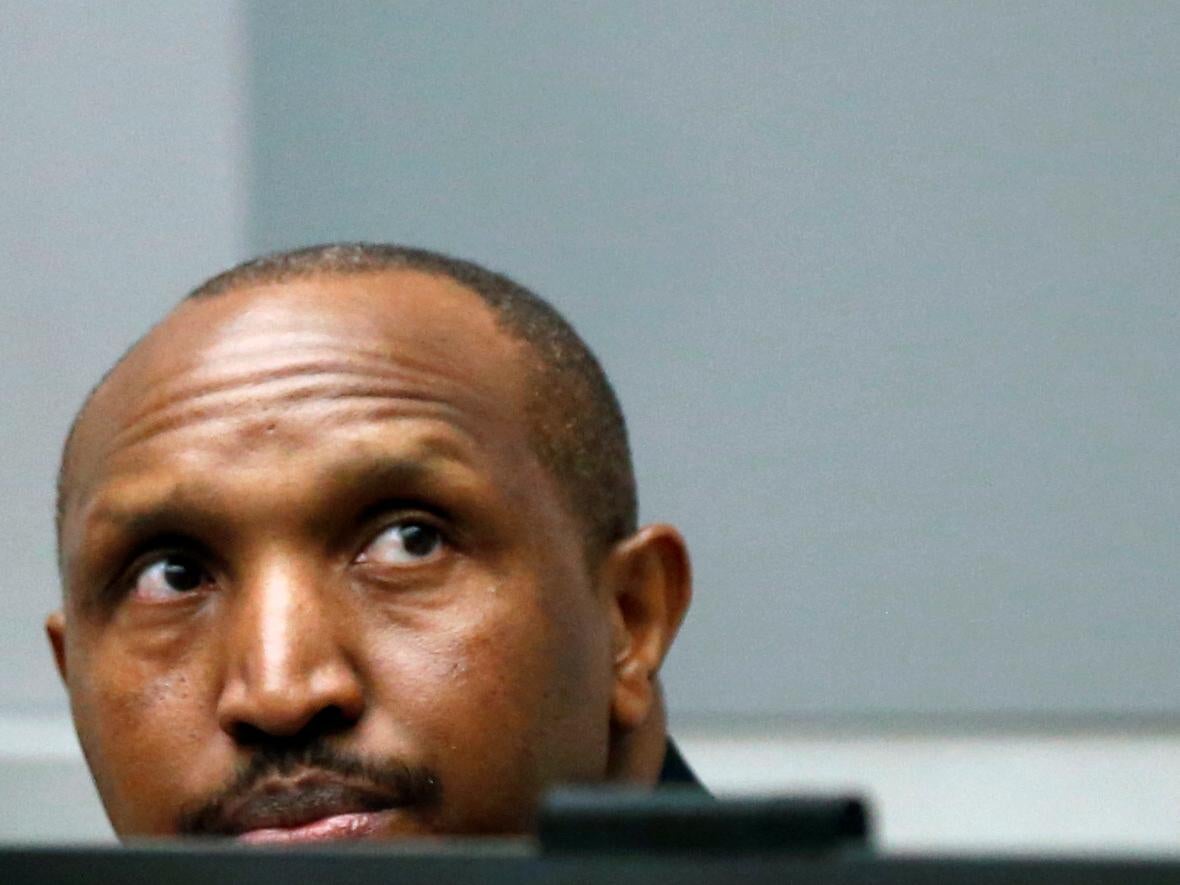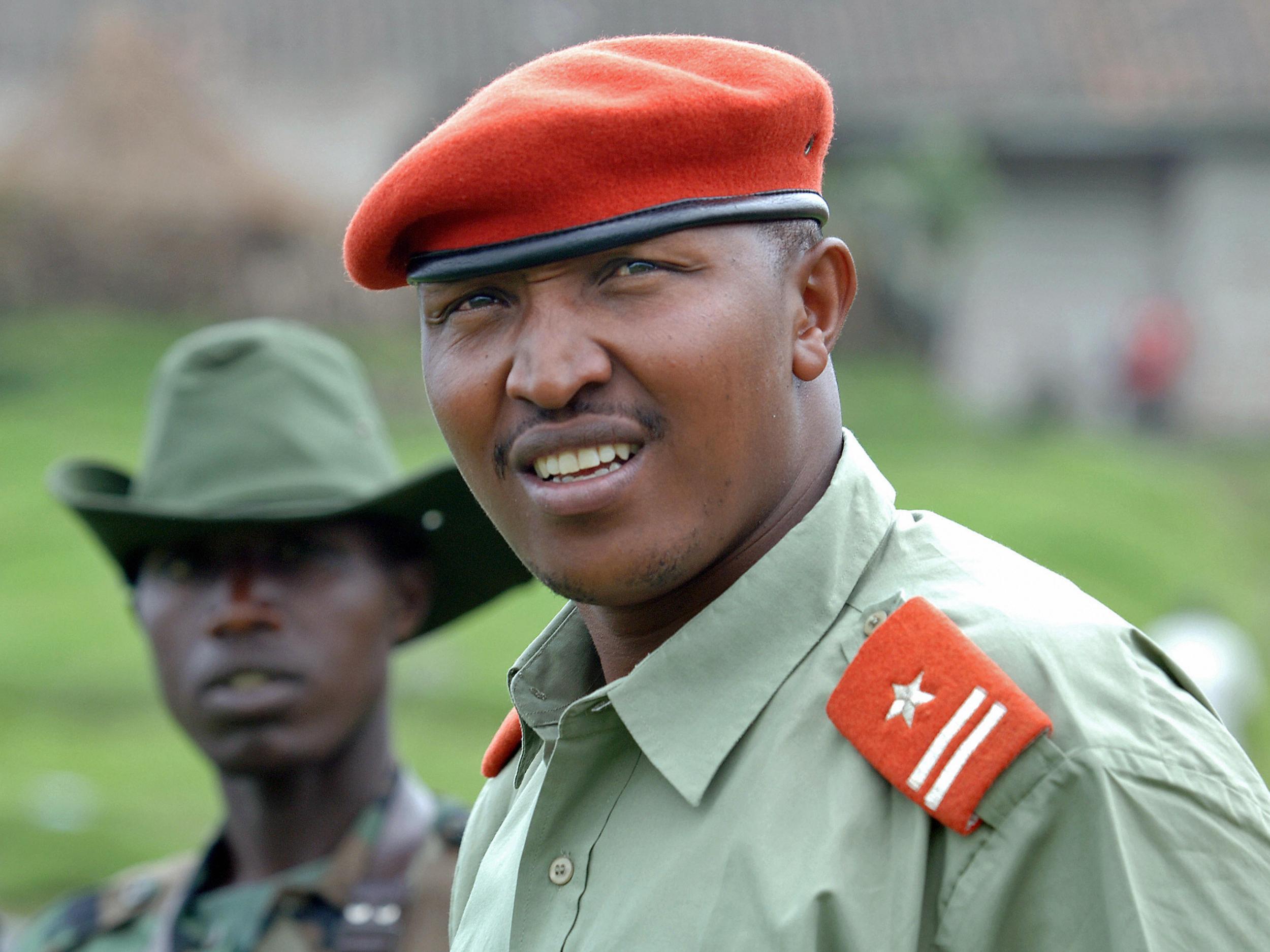Bosco Ntaganda: ‘Terminator’ DR Congo warlord convicted of murder, rape and recruiting child soldiers
On one occasion, fighters under his command raped a nine-year-old girl

Your support helps us to tell the story
From reproductive rights to climate change to Big Tech, The Independent is on the ground when the story is developing. Whether it's investigating the financials of Elon Musk's pro-Trump PAC or producing our latest documentary, 'The A Word', which shines a light on the American women fighting for reproductive rights, we know how important it is to parse out the facts from the messaging.
At such a critical moment in US history, we need reporters on the ground. Your donation allows us to keep sending journalists to speak to both sides of the story.
The Independent is trusted by Americans across the entire political spectrum. And unlike many other quality news outlets, we choose not to lock Americans out of our reporting and analysis with paywalls. We believe quality journalism should be available to everyone, paid for by those who can afford it.
Your support makes all the difference.A notorious rebel commander known as Congo’s “Terminator” has been found guilty of war crimes and crimes against humanity by judges at the International Criminal Court (ICC) today.
Bosco Ntaganda, 45, led rebels who killed and raped civilians, made them sexual slaves and conscripted child soldiers, among other things, during the bloody tribal conflict that took place in the mineral-rich Ituri region in the eastern Democratic Republic of the Congo in 2002-2003, ICC judges said.
A separate hearing will determine his sentence – he faces a maximum life sentence and has 30 days to appeal.
Presiding Judge Robert Fremr said that Ntaganda was guilty as a direct perpetrator or a co-perpetrator of a string of crimes, which human rights activists say isn’t always the case for warlords.
“What was unique about him is that he wasn’t like other warlords who gave orders from the rear and then claimed they weren’t involved – he directly perpetrated crimes,” Anneke Van Woudenberg told The Independent.
Ms Van Woudenberg, who used to be the senior researcher on the Congo for Human Rights Watch (HRW), has been documenting Ntaganda’s and other warlords’ crimes since 2003 and has met and interviewed Ntaganda on several occasions. She testified in the trial and handed over information to the court. She has since left HRW and is now executive editor of Rights and Accountability In Development (RAID).
Judge Fremr paused at times during his summary to detail specific instances of acts Ntaganda was responsible for, such as his personal calls for children to join his forces, as well as killings by his men, including that of a pregnant woman who had been kept in a pit.
On one occasion, fighters under his command raped a nine-year-old girl.
On another, Ntaganda himself shot and killed an elderly man serving as a Catholic priest after detaining and brutally interrogating him.
Judge Fremr said that Ntaganda was also guilty of a massacre in a banana field behind a building called The Paradiso.
“The bodies of those killed – men, women, children and babies – were found in the banana field over the next days,” Fremr said. “Some bodies were found naked, some had their hands tied up and some had their heads crushed. Several bodies were disemboweled or otherwise mutilated.”
Ntaganda was the deputy chief of staff and commander of operations for rebel group the Patriotic Forces for the Liberation of Congo (FPLC), the military wing of the Union of Congolese Patriots (UPC), during a conflict that broke out in the Ituri region of DR Congo 17 years ago.
The UPC, dominated by the Hema clan, targeted rival Lendu people to expel them from the region.
The force’s leader, Thomas Lubanga, was convicted by the ICC in 2012 of using child soldiers. He is serving a 14 year prison sentence.
During the trial, Ntaganda testified for weeks in his own defence and always maintained his innocence.
His lawyers argued he had sought to maintain discipline among his troops, punishing those that violated rules of war.
They also argued he was a victim himself. Ntaganda grew up in Rwanda as an ethnic Tutsi, facing considerable difficulties and persecution and eventually being conscripted as a child soldier himself.
Ms Van Woudenberg said he constantly brought up the issue. “He repeated it when I interviewed him, saying, ‘I’m a Tutsi and you don’t understand what it means; I’m a victim’,” she said. “I thought of him as an individual with a chip on his shoulder.”
She said he would repeatedly deny and lie about his actions.
Ntaganda was first indicted in 2006 but refused to turn himself in. He became a symbol of impunity in Africa after then President Joseph Kabila refused to arrest him, allegedly for the sake of DR Congo’s peace. Ntaganda even went on to serve as a general in Congo’s army.
Later, Ntaganda split from the army with his own rebel group and only turned himself in in 2013 as his power base crumbled.
“Every day of the seven years that Ntaganda freely roamed the streets of Goma, after the International Criminal Court issued his arrest warrant, increased the torment that the victims and their families had to endure – to the shame of the DRC authorities and the international community,” Joan Nyanyuki, Amnesty International’s Director for East Africa, said in a statement.
“We can only hope that today’s verdict provides some consolation to those affected … and paves the way for his victims and their families to finally obtain a measure of justice and reparations.”

“The trial against Bosco Ntaganda is a powerful reminder to warlords in Congo that they too could face prosecution,” Maria Elena Vignoli, international justice counsel at HRW, said in a statement.
“At the same time, this case highlights the need for the ICC and Congolese authorities to do more to bring justice for atrocities in Congo.”
Vignoli said thousands more victims in Congo still await justice.
Ntaganda’s conviction came as a victory for ICC prosecutors after high profile defeats recently. Set up in 2002 to prosecute war crimes and crimes against humanity when its member states are unable or unwilling to do so, the court has so far only convicted four people of war crimes and five more for interfering with witnesses.
In January, judges acquitted former Ivory Coast president Laurent Gbagbo and a former government minister of involvement in crimes following disputed 2010 elections.
Last year, a former Congolese vice president, Jean-Pierre Bemba, was acquitted on appeal of crimes allegedly committed by his militia in neighboring Central African Republic.
Ms Van Woudenberg said the judgment was also important because it “covered the whole range of crimes committed in the Congo, not just child soldiers. It encompasses the heart of what people have suffered in the Congo.”
Ntaganda is the first person convicted of sexual slavery by the ICC.
Judges said 102 witnesses testified at the trial, including a woman who survived having her throat slit by Ntaganda’s forces.
Ntaganda wore a dark blue suit and showed no emotion as Judge Fremr passed judgment.
Additional reporting by Associated Press and Reuters
Join our commenting forum
Join thought-provoking conversations, follow other Independent readers and see their replies
Comments